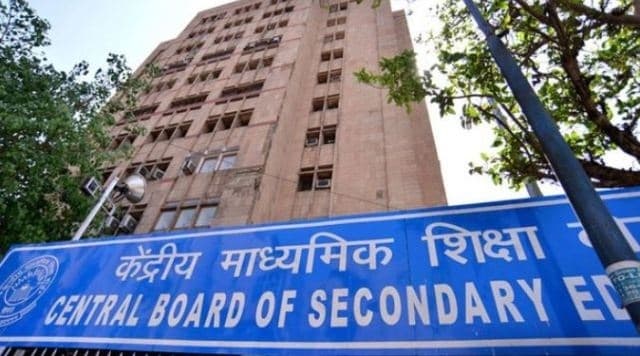CBSE new syllabus 2020-21, Great, changed as per new AC

CBSE new syllabus, Central Board of Secondary Education syllabus is said to have been reduced for the academic year 2020-2021 as NCERT has come up with a new academic calendar due to COVID-19 situation.
Sources say, NCERT is said to have brought out the new academic calendar in tune with the suggestion of Union Minister for Human Resource Development.


A point worth noting with regards to CBSE new syllabus is that most activities might be removed from it so that time allotted for the classes will remain high. The point is suggestions are said to have been taken from various stake holders while framing CBSE new syllabus.
CBSE new syllabus is brought in for classes 9,10,11 and 12. Some of the salient features in the new syllabus with Biology_11 is that the weightage of Unit 1 and Unit 3 has been changed from 12 and 12 marks from the previous 10 and 14 respectively.
Topic ‘Secondary Growth’ has now been added to Chapter 6. With regards to Biology_12, term ‘sacred groves’ has been added into Chapter no 15. There has been no change with regards to practicals for Biology_12.

With regards to Chemistry_11, the topics namely ‘Discovery of Electron, Proton and Neutron, atomic number, isotopes and isobars, Thomson’s model and its limitations, Rutherford’s model and its limitations have been added to Unit 2 (Structure of Atom).
The name of Unit 11 (p-block Elements) is changed to ‘Some p-Block Elements’ For Chemistry_12, a new chapter ‘Solid State’ has been added as Unit 1. In Unit 7 (p-Block Elements), Group-15 have been added and its number of periods also changed from 14 to 12.
As far as Economics_11 is concerned, topic ‘Sampling and Non-sampling errors is removed from Unit 2. In practicals related to Physics_11, atleast 15 experiments were to be recorded, now 12 experiments are to be recorded with six from each section.


With regards to Physics_12, lesson ‘Experimental study of photoelectric effect’ has been added to Chapter 11(Dual nature of radiation and matter). With regards to practicals of Physics_12, atleast 15 experiments had to be recorded earlier, now atleast 12 experiments have to be recorded.
The access to the curriculum with regards to CBSE new syllabus subject wise can be obtained on the official link ‘http://cbseacademic.nic.in/curriculum_2021.html‘ The curriculum is available for both secondary classes, classes 9 and 10 and senior secondary classes, classes 11 and 12.

Students can also read initial information before downloading the CBSE new syllabus. CBSE new syllabys is available for Languages (Group-L), main subjects (Group A1) and Group-A), Co-Scholastic Areas and Resources for classes 9,10,11 and 12. The CBSE new syllabus is expected to be useful for students as it ensures that maximum focus is available for academics.
About CBSE
A trail of developments mark the significant changes that took place over the years in shaping up the Board to its present status. U P Board of High School and Intermediate Education was the first Board set up in 1921. It has under its jurisdiction Rajputana, Central India and Gwalior.
In response to the representation made by the Government of United Provinces, the then Government of India suggested to set up a joint Board in 1929 for all the areas which was named as the ‘Board of High School and Intermediate Education, Rajputana’. This included Ajmer, Merwara, Central India and Gwalior.

The Board witnessed rapid growth and expansion at the level of Secondary education resulting in improved quality and standard of education in institutions. But with the advent of State Universities and State Boards in various parts of the country the jurisdiction of the Board was confined only to Ajmer, Bhopal and Vindhya Pradesh later.
As a result of this, in 1952, the constitution of the Board was amended wherein its jurisdiction was extended to part-C and Part-D territories and the Board was given its present name ‘Central Board of Secondary Education’.
It was in the year 1962 finally that the Board was reconstituted. The main objectives were to serve the educational institutions more effectively, to be responsive to the educational needs of those students whose parents were employed in the Central Government and had frequently transferable jobs.
S Vishnu Sharmaa now works with collegechalo.com in the news team. His work involves writing articles related to the education sector in India with a keen focus on higher education issues. Journalism has always been a passion for him. He has more than 10 years of enriching experience with various media organizations like Eenadu, Webdunia, News Today, Infodea. He also has a strong interest in writing about defence and railway related issues.









